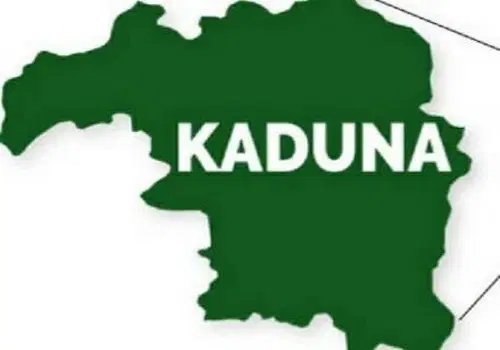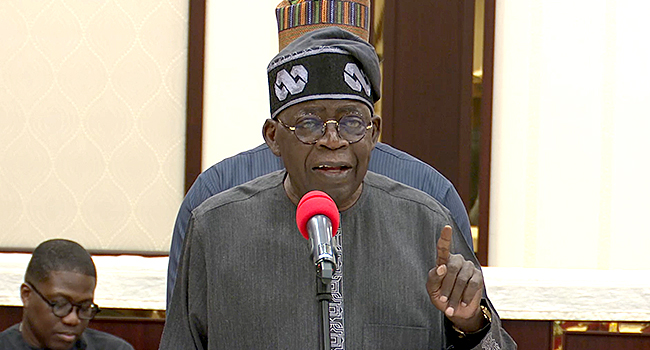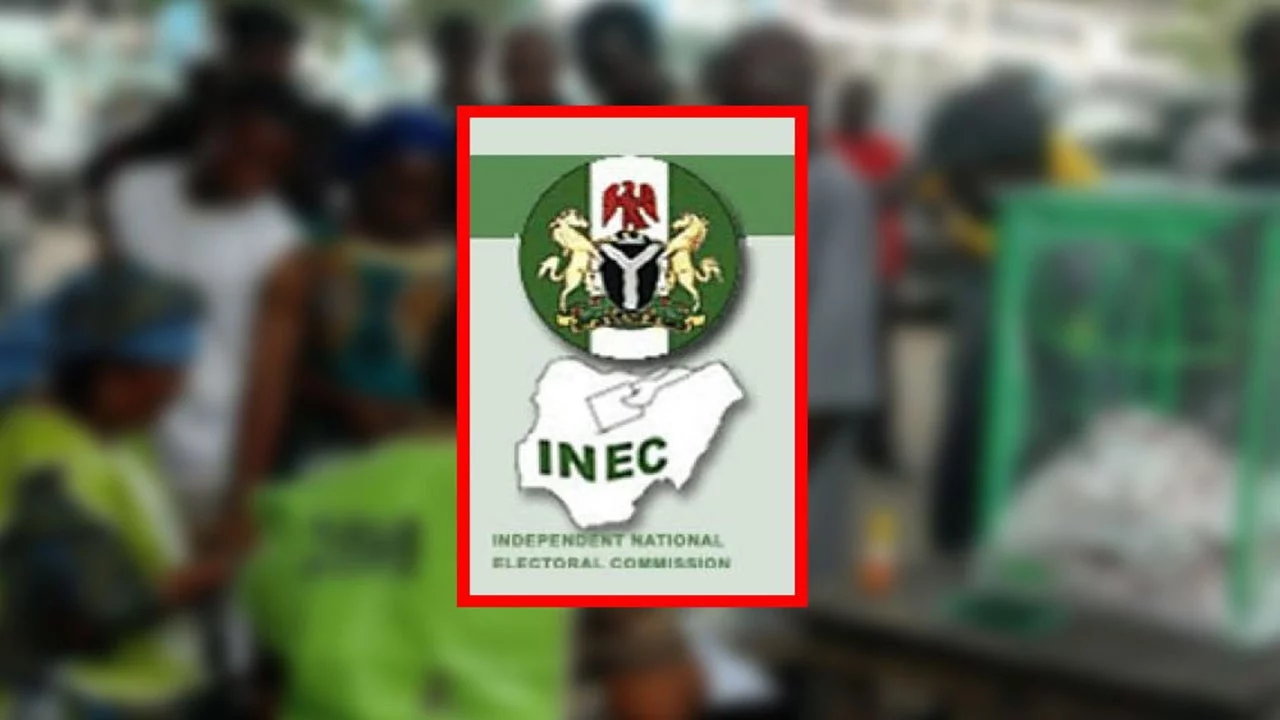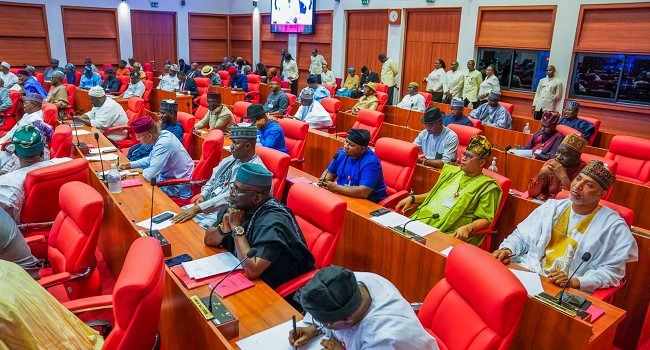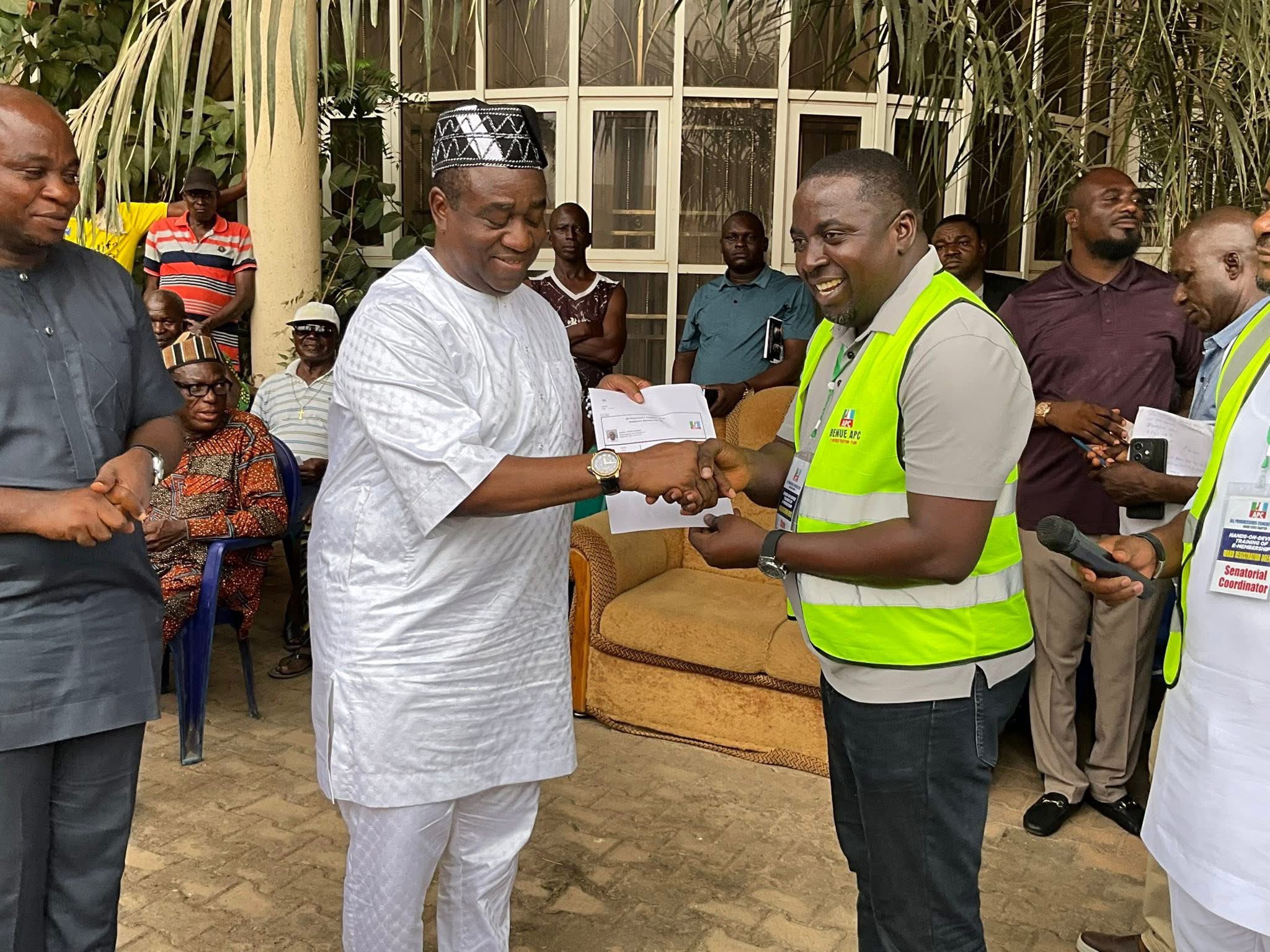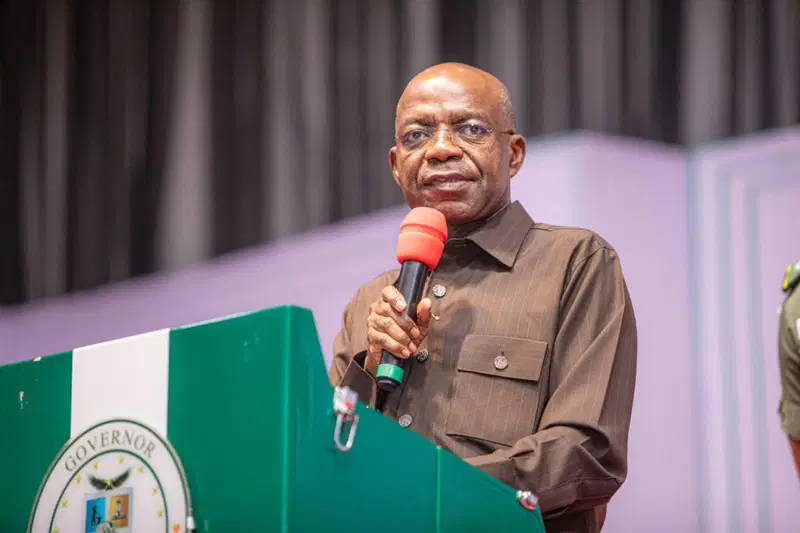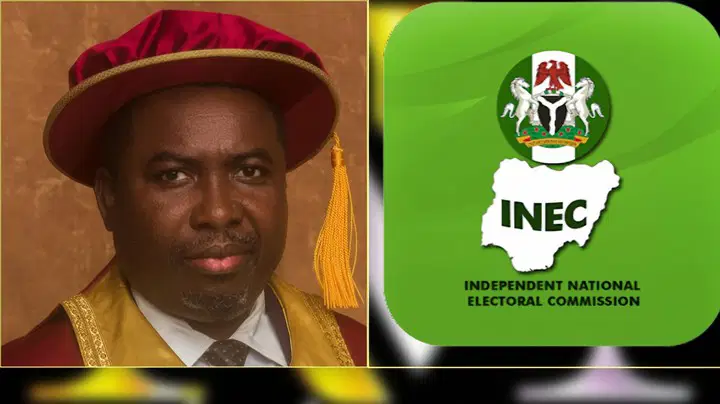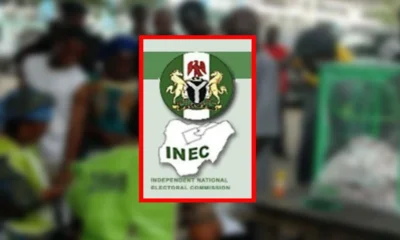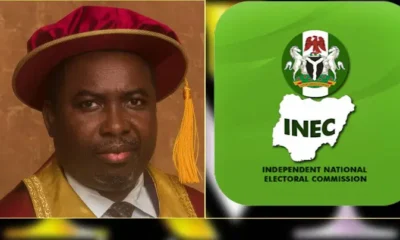National News
INEC, NASS collaborate on comprehensive electoral legal framework

The Independent National Electoral Commission (INEC) is seeking constitutional support for diaspora voting, early voting for election personnel on special duty, and special parliamentary seats for underrepresented groups.
These proposals form part of ongoing constitutional and Electoral Act 2022 amendments being jointly developed by the Commission and the Committees on Electoral Matters of the Senate and House of Representatives.
Special Adviser to the INEC Chairman, Professor Mohammad Kuna, made this known during a presentation titled “Issues and Contentions in the Electoral Legal Framework: An Overview from INEC’s Submission,” at a retreat organised by INEC for the Joint Committee on Electoral Matters of the National Assembly, held in Lagos.
Further proposed amendments include provisions for voting by inmates, special seats for women and persons with disabilities (PWDs), and special funding for the Commission.
Professor Kuna stated: “The 2023 General Election was the seventh since Nigeria’s return to civil rule in 1999. In addition to general elections, the Commission has conducted numerous off-cycle, by-elections and re-run elections.
Field experiences from these elections, recommendations from domestic and international observers, judicial pronouncements, and stakeholder activities have highlighted the need for reforms to the electoral legal framework.”
He noted that while the Electoral Act 2022 introduced over 80 new provisions to improve transparency, security, accountability, technology adoption, and political party regulation, issues arising from the 2023 elections revealed gaps that necessitate further amendments to both the Constitution and the Act.
The Commission’s submission highlights four constitutional issues and eleven key amendments to the Electoral Act requiring urgent attention. Recommendations include amending Sections 77(2), 117(1), 132(5), and 178(5) of the 1999 Constitution (as amended) to provide for early, special, diaspora, and inmate voting.
According to INEC, such amendments would legally enable early and special voting for election personnel, those providing essential services, eligible incarcerated voters, and Nigerians living abroad during elections.
The Commission also proposes amending Section 14(3)(f) of the Third Schedule to empower INEC to appoint and discipline heads of State and Federal Capital Territory offices, citing developments in Adamawa State during the last gubernatorial election.
Further constitutional amendments being sought include revisions to Sections 153(1), 154(3), 156(1)(a), 157(2), 158(1), and 160(1) as well as Paragraph 15(b-d) of the Third Schedule, to establish an Electoral Offences Commission and a Political Party Regulatory Agency.
Additionally, INEC recommends amendments to Sections 48, 49, 71, and 91 of the Constitution to provide special seats for women and PWDs, advocating that the most effective means to achieve greater political inclusion is through affirmative action backed by law.
On the Electoral Act 2022, INEC is seeking numerous amendments to clarify ambiguities and rectify cross-referencing errors. For instance, it noted that Section 60(5) refers to the “transfer” of results, whereas Sections 64(4) and 64(5) speak of “direct transmission,” leading to confusion. Similar ambiguities were identified in Sections 29(1), 75(3)-(4), 77(3), 131(5)-(6), and 132(5-10).
INEC proposes an amendment to Section 65(1) to specifically state that election result reviews should only be triggered by declarations made under duress.
The Commission also recommends changes to Section 3(3) to ensure more stable funding, and to Sections 12 and 45 to formally introduce early and special voting systems.
Other significant proposals include:
Amending Sections 75-90 and 144-145 to transfer powers regarding political party registration, monitoring, and deregistration from INEC to the proposed Political Party Regulatory Agency.
Empowering INEC to appoint heads of State and FCT offices.
Extending the period for displaying the preliminary voters’ register from 14 to 21 days to accommodate claims and objections.
Introducing clearer timelines for withdrawal and substitution of candidates, limiting changes to instances of death after the final list publication.
Amending Sections 47(1) and 16(1),(2),(4) to allow for electronically downloadable voter cards.
Imposing stricter penalties on parties that deploy unauthorised agents or fail to submit congress and primary election schedules as required.
Professor Kuna emphasised that: “While these 15 constitutional and Electoral Act issues require urgent attention, it is critical to ensure that today’s solutions do not create bigger problems tomorrow. Electoral reforms must enhance transparency, accountability, and electoral justice.”
Speaking at the retreat, INEC Chairman, Professor Mahmood Yakubu, called on the National Assembly to expedite amendments to the Electoral Act ahead of the 2027 general elections.
He said: “This engagement provides better insight into election management challenges than could be achieved through brief public hearings.
A major historical challenge in Nigerian elections has been the postponement of elections due to logistical difficulties in producing and delivering sensitive materials. However, reforms to the Electoral Act, providing a six-month window between primaries and elections, enabled better planning for the 2023 polls.”
Professor Yakubu highlighted that for the first time since 1999, all sensitive election materials for the 2023 General Election were produced domestically, a feat recognised by the Chartered Institute of Professional Printers of Nigeria.
He stressed the importance of concluding the electoral reform process early enough to give INEC sufficient time for effective implementation.
-
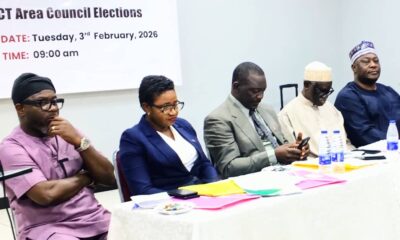
 News2 days ago
News2 days agoFCT Polls: NUJ FCT seeks credible coverage, asks security agencies to protect journalists
-
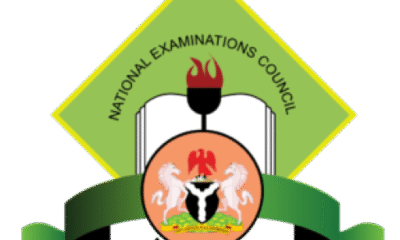
 National News2 days ago
National News2 days agoJUST IN: NECO releases 2025 External SSCE Results
-
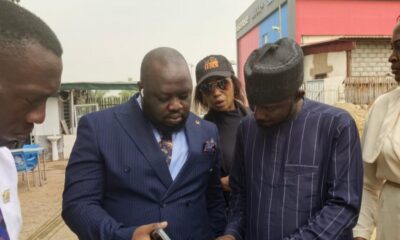
 NUJ FCT2 days ago
NUJ FCT2 days agoBespoke Holdings MD Olatunji Visits NUJ FCT Council, pledges immediate support for Ultra Modern Congress Hall
-
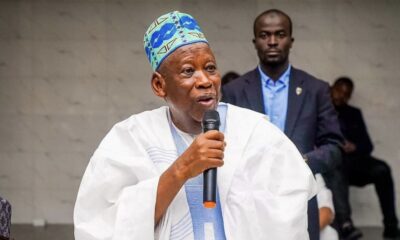
 News2 days ago
News2 days agoKano Court adjourns Ganduje’s trial over alleged misappropriation of funds to April 15
-
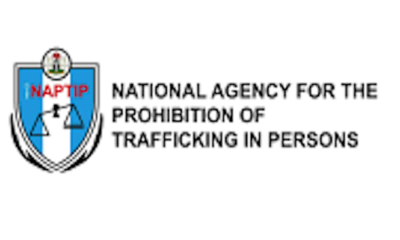
 News2 days ago
News2 days agoNAPTIP cracks Human Trafficking ring in Onitsha, rescues 17 victims, Six arrested
-

 Entertainment2 days ago
Entertainment2 days agoSeyi Tinubu presents Obi Cubana with City Boy Movement appointment letter
-

 National News2 days ago
National News2 days agoFG raises alarm over rising diseases linked to Greenhouse Gas Emissions
-
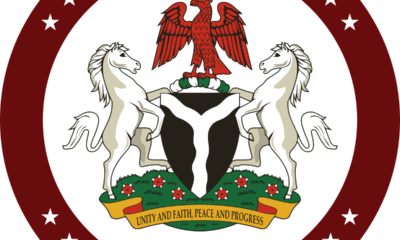
 National News2 days ago
National News2 days agoSenate raises alarm over Snakebite deaths, seeks mandatory Anti-Venom in Hospitals


